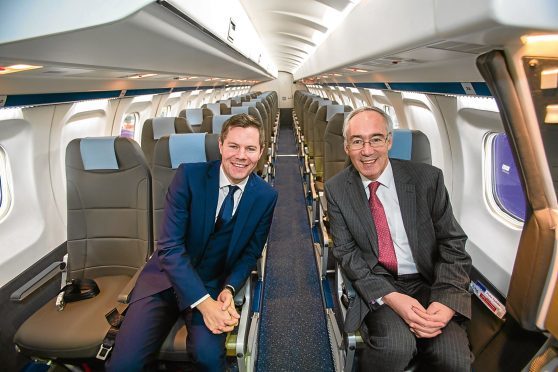Loganair said yesterday it had turned to its bank and shareholders for new funds to cover the start-up costs of re-launching the business as a standalone airline.
Chairman David Harrison said intense competition on some of its routes since September had also contributed to the need for a refinancing.
Loganair’s new support package includes a £6million Clydesdale Bank overdraft and £3million loan from Bond Business Services, a company controlled by aviation industry entrepreneur Stephen Bond.
Mr Bond and his brother, Peter, have a majority stake in Loganair’s parent, Airline Investments.
Announcing a drop in annual profits but also record turnover yesterday, Paisley-based Loganair said its recent re-branding, start-up costs for new contracts and the advent of competition on a number of key routes meant it was likely to be loss-making in the 2017/18 trading year.
Mr Harrison said it was “no surprise” that former franchise partner Flybe had recently decided to axe its Aberdeen-Shetland flights, leaving Loganair as the sole operator on the route.
And he repeated Loganair’s earlier warnings that fares were likely to rise after a period of “unsustainable” low prices between the mainland and Shetland.
He added: “There is not space in the market for two competing airlines. We have had many instances where our aircraft were flying to Shetland with only a handful of people on board.
“Flybe must have been losing large amounts of money, and we have also been losing money on these services.
“Fares will go up but we are extremely mindful of the need to keep them as affordable as possible.”
Mr Harrison said there would be announcements about new initiatives affecting the Shetland flights, as well as code-share agreements soon.
Loganair reported pre-tax profits of £3.06million for the 12 months to March 31, 2017 – an 11% drop from £3.6million the year before – but turnover smashed through the £100million barrier for the first time, up 8% to £103million.
Passenger numbers grew by 8.6% to an all-time high of 765,091, with 62.8% of seats filled on scheduled services. Punctuality improved over the period, with 80% of flights leaving within 15 minutes of schedule.
